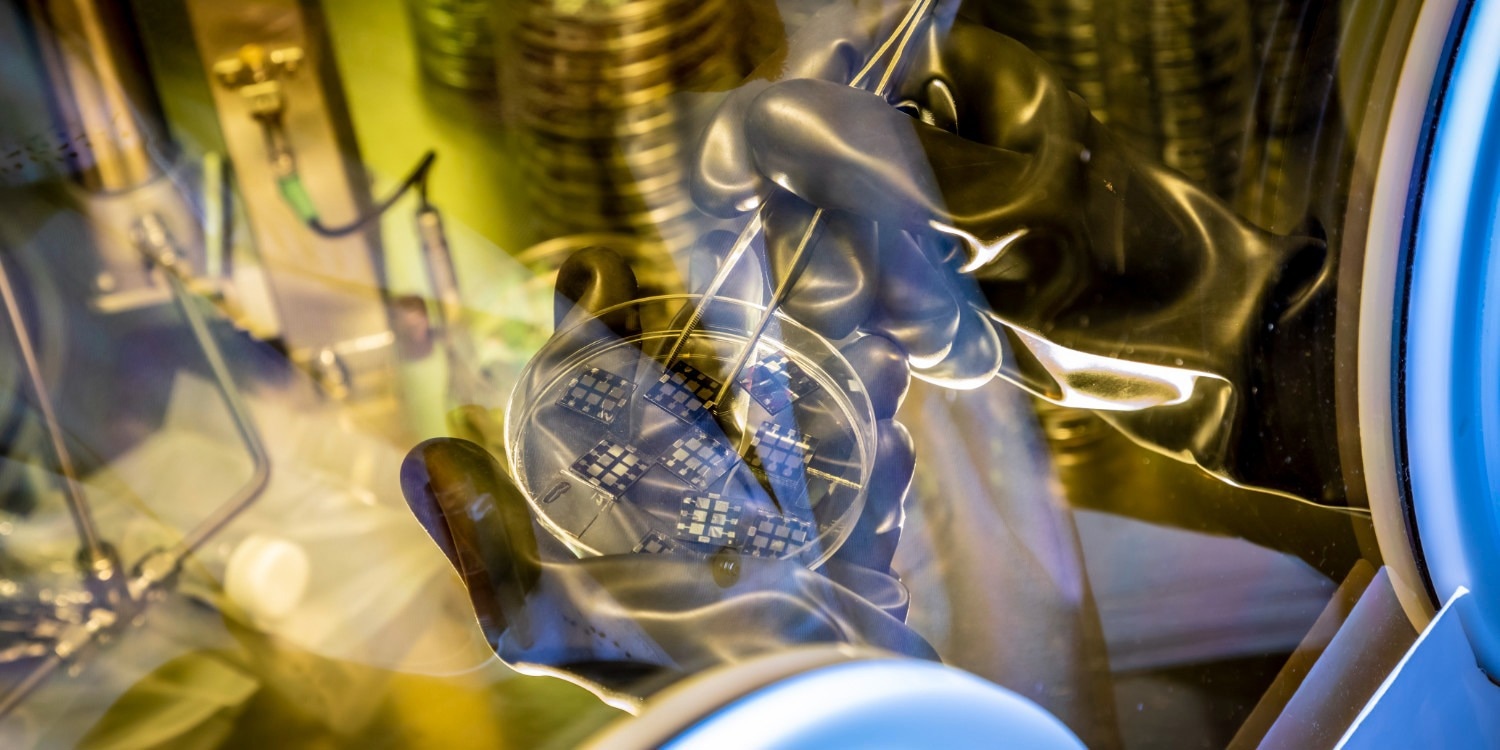Organic photovoltaic cells are characterized by their lightweight and flexible nature, making them a highly promising technology. A global research consortium, led by TU Graz, is currently dedicated to enhancing the durability of these materials.

Organic solar cells in a so-called glove box in which they are exposed to artificial sunlight. Image Credit: Lunghammer - TU Graz
While silicon-based solar cells have been in use for seven decades, organic solar cells are a relatively recent innovation. Nevertheless, they offer exciting prospects for clean energy generation.
These organic compound-based solar cells can achieve efficiencies of up to 19%, despite being remarkably thin, lightweight, and flexible. When applied to transparent film, they can be employed in a wide array of shapes and colors, making them suitable for applications where traditional silicon-based solar cells fall short.
Until now, a significant hurdle has been the limited lifespan of organic solar cells, causing them to have minimal commercial significance.
However, a transformation is on the horizon. Graz University of Technology (TU Graz) is spearheading the “OPVStability” network, uniting global collaborators from the realms of both science and industry.
Over the next four years, this consortium will be dedicated to advancing the longevity of organic solar cells. The European Commission has allocated approximately 2.7 million euros in funding for this project.
Ten Research Institutes Across Seven Countries
There are thousands of material combinations that can be used to produce organic solar cells. We want to find out which of them are the most suitable: i.e. particularly durable and yet efficient in terms of electricity output.
Gregor Trimmel, Project Director, Institute for Chemistry and Technology of Materials, Graz University of Technology
In the coming months, ten research institutes across seven countries will establish individual Ph.D. positions to accelerate the development efforts in collaboration with industry partners InfinityPV, ASCA, and Sunnybag.
In principle, organic photovoltaic cells have the potential to produce electricity at similarly low costs as silicon-based products.
Gregor Trimmel, Project Director, Institute for Chemistry and Technology of Materials, Graz University of Technology
Analysis of Decomposition
The researchers aim to meticulously investigate the decomposition processes of several potentially viable materials. To achieve this, they subject the organic compounds to artificial sunlight within laboratory settings and also assess their performance under actual weather conditions in Europe and the Negev desert.
The accurate analysis of gradual degradation is a difficulty.
Organic solar cells are no more than 200 nanometres thick. To be able to isolate decomposition products in them, very special methods and instruments are needed.
Gregor Trimmel, Project Director, Institute for Chemistry and Technology of Materials, Graz University of Technology
Moreover, the researchers are employing artificial intelligence and machine learning techniques to analyze the extensive datasets generated in high-throughput experiments. These investigations will yield precise insights into the chemical decomposition processes.
In addition to conducting physical tests, digital simulations of chemical compounds will be performed to identify the most appropriate materials for the forthcoming generation of organic photovoltaic cells.